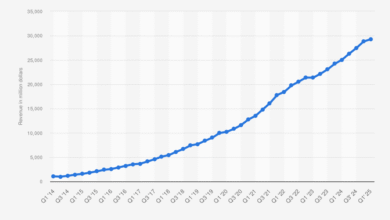Drug Prices: Trump’s New Order to Lower Costs for Americans

Drug prices in the United States have become a contentious topic, affecting millions of citizens who struggle to afford necessary medications. In an effort to combat the crisis of exorbitant prescription costs, President Donald Trump is set to reinstate a policy aimed at slashing these prices by linking U.S. drug pricing to lower rates available in other countries. This “most favored nation” policy seeks to ensure American patients no longer foot the bill for the pharmaceutical industry’s high profits, prompting a significant reevaluation of how medications are priced domestically. Facing fierce opposition from pharma companies, which warn of possible adverse impacts on innovation and accessibility, this bold move has the potential to transform the landscape of the healthcare system. As Trump moves closer to signing this order, discussions focus on how it may influence everything from the bottom lines of pharmaceutical giants to the daily lives of everyday patients seeking lower prescription costs.
The ongoing dilemma surrounding medication costs is not merely an economic issue; it speaks to the heart of healthcare equity. The upcoming presidential actions toward aligning drug prices with international norms exemplify a significant shift in how the U.S. government approaches pharmaceutical pricing. This strategy, often described as adjusting domestic pharmaceutical pricing policies, aims to alleviate the financial burden on patients while considering the pharmaceutical industry’s broader implications. By emphasizing the need for fair pricing, the government’s response highlights the urgency of reforming the American health system’s interaction with drug manufacturers. As consumers await potential changes in their prescription drug costs, the conversation continues regarding the balance of accessible healthcare and profitable innovation in the pharmaceutical sector.
Understanding the Trump Drug Order and Its Objectives
President Trump’s new executive order aims to bridge the gap between U.S. drug prices and those in other countries by enforcing the ‘most favored nation’ pricing policy. This approach will allow the government to set reimbursement rates for certain medications based on the lower prices paid by foreign nations. The core objective of this order is to alleviate the financial burden faced by American patients who currently pay significantly more for prescriptions compared to their international counterparts.
White House officials emphasized the importance of this policy in making prescription drugs more affordable for the average American. Currently, U.S. citizens face prescription costs that can be two to three times higher than in other developed nations. By linking the pricing to international standards, the Trump administration hopes to achieve lower prescription costs and ensure that Americans are no longer financially exploited through exorbitant drug prices.
Impact of Drug Prices on the Pharmaceutical Industry
The pharmaceutical industry is bracing for the repercussions of Trump’s ‘most favored nation’ policy, which could significantly affect their profit margins. Major drug companies are expected to see a decline in stock prices as a result of this announcement, as evidenced by premarket trading reactions. Companies like Eli Lilly and Pfizer have already seen their shares drop, indicating investor concerns over the long-term effects of this pricing model on innovation and profitability.
Furthermore, the pharmaceutical industry’s ability to fund research and development may be jeopardized if drug prices are forced down across the board. Drug manufacturers previously argued that without sufficient profits, their capacity to bring new treatments and innovations to market could be severely hindered, potentially leading to fewer new medicines for future patients.
The Most Favored Nation Policy Explained
The ‘most favored nation’ policy introduced in Trump’s drug order is intended to create a level playing field in which U.S. drug prices reflect those in comparable economies. Under this initiative, the government will negotiate prices with pharmaceutical companies with the aim of lowering overall costs for patients. This policy not only seeks to address current disparities but also aims to prevent future price increases that could further widen the gap between U.S. costs and those abroad.
However, critics argue that this approach may not fully alleviate the high drug prices Americans face. Experts suggest that even if drug costs are reduced, the fundamental economic structure of the pharmaceutical industry may remain unchanged, leading to ongoing issues with access to affordable medications. There is also concern that pushing for lower prices might drive companies to prioritize profits in foreign markets, potentially leading them to withdraw from less profitable U.S. markets.
The Role of U.S. Drug Pricing in Global Markets
American drug prices have been a contentious topic, particularly given that the U.S. market accounts for a substantial share of global pharmaceutical profits. Many in the industry worry that the new order will shift the financial burdens of drug pricing policies onto U.S. consumers, leading to a scenario where drug developers may focus on markets that yield higher profits rather than prioritizing the American healthcare system. As such, the dynamics of U.S. drug pricing could initiate broader changes in how pharmaceuticals are marketed and sold worldwide.
The impact of U.S. drug pricing extends beyond national borders, prompting discussions about the fairness of pharmaceutical revenue models internationally. Regulations aimed at curbing high domestic prices may lead to conflicts with drug producers operating in global markets, where negotiation power and pricing strategies differ greatly from those in the U.S. Ultimately, these international dynamics could redefine the pharmaceutical landscape as companies recalibrate their pricing strategies based on the proposed U.S. policies.
Challenges and Controversies Surrounding Drug Pricing Reforms
The implementation of the ‘most favored nation’ policy comes with its own set of challenges and controversies. Critics, including many within the pharmaceutical sector, argue that such policies could potentially stifle innovation in drug development. Industry leaders warn that if profits shrink, research funding may dry up, ultimately leading to fewer breakthrough treatments and medications for patients.
Legal challenges are also anticipated as drug companies may launch lawsuits to block the policy’s implementation, similar to actions taken during previous attempts at drug pricing reform. Such legal battles could delay crucial access to medications for Americans who desperately need lower prices. The road ahead for President Trump’s drug order is fraught with obstacles that may impact how effectively these policies can be enacted.
Evaluating Potential Patient Benefits of Drug Price Reductions
If successfully implemented, Trump’s executive order could lead to much-needed changes in prescription drug costs for U.S. patients. Many Americans struggle with the high prices of medications, which significantly impacts their health and well-being. This executive order aims to address these financial burdens, providing patients with access to affordable prescriptions that they may have otherwise been unable to afford.
Moreover, widespread relief from high drug prices could enhance medication adherence among patients. When patients are able to afford their prescriptions, they are more likely to follow treatment plans and seek necessary medical care, contributing to better health outcomes overall. With affordability as a focus, the policy has the potential to transform the American healthcare landscape in a positive way for millions of citizens.
Negotiating Drug Prices: The New Frontier in Healthcare
The new executive order highlights a pivotal shift in how drug prices will be negotiated moving forward. By empowering the Department of Health and Human Services (HHS) to target price reductions across various markets, the administration is taking a proactive approach to tackle the rising costs of prescription medications. This new frontier in healthcare negotiation may set a precedent for future drug pricing discussions and policies.
Negotiating directly with drug manufacturers represents a significant change in U.S. healthcare policy. The Trump administration’s focus on the most favored nation pricing could reshape the relationship between pharmaceutical companies and the government, creating a scenario where price reductions are expected rather than negotiated. This shift could lead to a more transparent pricing model that benefits consumers and holds pharmaceutical companies accountable for their pricing strategies.
Future Innovations: Balancing Costs and Healthcare Advances
One of the primary concerns surrounding the push for lower drug prices is the potential impact on health innovations. As the pharmaceutical industry grapples with tighter profit margins due to the ‘most favored nation’ policy, there are fears that investment in research and development could decrease. The risk is that fewer new medications and treatments will make it to market, ultimately harming patients who rely on cutting-edge medical advancements.
However, some industry experts argue that a balanced approach could yield positive outcomes. If drug manufacturers are encouraged to innovate within a pricing framework that takes into account fair compensation for their efforts, there may still be opportunities for groundbreaking advancements. The challenge will be finding a sustainable model that allows for continued innovation while addressing the urgent need for affordable medications in the U.S.
The Intersection of Medicine, Politics, and Economics
The intersection of politics, economics, and medicine is readily apparent in the ongoing discussions surrounding U.S. drug prices. The current administration’s focus on implementing policies aimed at lowering these costs signifies a broader political effort to prioritize healthcare affordability, a critical issue for voters. As part of these discussions, public sentiment around drug pricing is increasingly influencing political agendas and legislative actions.
Historically, the pharmaceutical industry has wielded significant influence in shaping drug pricing policies, often prioritizing profit maximization over patient care. However, as public discontent with high drug costs grows, the pressure on politicians to take decisive action intensifies. The current push for a ‘most favored nation’ policy illustrates the evolving relationship between public health needs and political emphasis, highlighting the multifaceted challenges of healthcare reform.
Frequently Asked Questions
What is the Trump drug order and how does it affect U.S. drug pricing?
The Trump drug order aims to lower U.S. drug prices by linking them to lower prices in foreign countries. This executive order reinstates the ‘most favored nation’ policy, compelling the government to pay no more than the lowest price offered abroad for certain medications, which could potentially lower prescription costs for American patients.
How does the most favored nation policy impact drug prices in the U.S.?
The most favored nation policy seeks to adjust drug prices in the U.S. to match lower prices found in other developed countries. By implementing this policy, the administration aims to reduce prescription costs, compelling pharmaceutical companies to negotiate better pricing or risk facing enforced price reductions.
What are the potential effects of lower prescription costs on the pharmaceutical industry?
Lower prescription costs mandated by policies such as Trump’s drug order may pressure pharmaceutical companies to reduce profits. However, the industry argues that such pricing pressures could impact research and development budgets, ultimately affecting innovation and the introduction of new medications.
Why are drug prices higher in the U.S. compared to other countries?
U.S. drug prices are typically two to three times higher than those in other developed nations due to several factors, including market dynamics, absence of universal pricing negotiations, and the lack of a single-payer system, which gives foreign governments more leverage to negotiate lower drug prices.
How will Trump’s order influence negotiations between the government and drug manufacturers?
Trump’s order directs the Secretary of Health and Human Services to establish clear targets for price reductions and encourages manufacturers to offer most favored nation prices for direct-to-consumer sales. Should drug manufacturers fail to meet price targets, the administration threatens to enforce pricing changes through rulemaking.
What measures are being taken to ensure compliance with the drug pricing order?
To ensure compliance, the administration plans to direct the Department of Justice and the Federal Trade Commission to rigorously enforce against anti-competitive practices that keep drug prices high. This comprehensive approach aims to bring about meaningful reductions in drug costs in the U.S.
Can patients expect immediate changes in drug prices due to the Trump drug order?
While the intent of Trump’s drug order is to lower costs for patients, the specific timeline for these changes is unclear. It will depend on negotiations between the government and pharmaceutical companies, as well as compliance with the established price targets.
How might the Trump administration’s drug pricing initiative affect global pharmaceutical markets?
The Trump administration’s initiative could lead to drug manufacturers re-evaluating their pricing strategies globally. As U.S. drug prices decrease, companies might seek to compensate by adjusting prices in foreign markets, potentially leading to a shift in how the pharmaceutical industry operates worldwide.
What role does Medicare play in negotiating U.S. drug prices and how does it intersect with the recent drug pricing order?
Medicare’s role in negotiating drug prices is crucial, as it grants the government significant leverage over pharmaceutical companies. The Trump administration’s order complements Medicare’s existing authority by further pushing for reductions in drug prices across all markets, including those covered by Medicare.
What challenges might the Trump drug order face from the pharmaceutical industry?
The pharmaceutical industry has historically opposed measures aimed at reducing drug prices, citing potential harm to profits and R&D funding. Challenges could include legal actions to block the implementation of price reductions, as well as lobbying efforts to influence public policy.
| Key Point | Details |
|---|---|
| Reviving Price Policy | Trump reinstates a policy tying U.S. drug prices to lower prices abroad. |
| Industry Impact | Pharmaceutical stocks fell, projecting concern over potential profit reductions. |
| Targeted Drugs | Focus on medication with largest price disparities, possibly including GLP-1 drugs. |
| Future Negotiations | HHS to negotiate price targets and ensure compliance with ‘most favored nation’ pricing. |
| Political Dynamics | Previous efforts faced legal challenges, affecting the policy’s enforcement. |
Summary
Drug prices in the U.S. are set to undergo significant changes as President Trump signs an executive order linking domestic medication costs to lower prices available internationally. This measure aims to rejuvenate efforts in reducing the exorbitant costs faced by American patients, which average two to three times higher than those in other developed nations. The administration’s expected negotiations may cause pharmaceutical companies to reconsider their pricing strategies, potentially affecting their profit margins but ultimately aiming to benefit American consumers.




